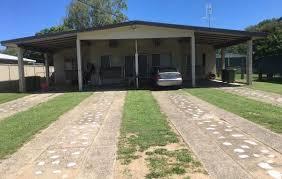Notifications

6 minutes, 32 seconds
-55 Views 0 Comments 0 Likes 0 Reviews

Renting out or moving into a property in South Australia (SA) involves understanding and agreeing to a set of rules and expectations known as bond and rental terms. These terms outline financial commitments, legal responsibilities, and timelines that both landlords and tenants must follow. Whether you're a property owner or a tenant, it's essential to grasp the basics to avoid misunderstandings and legal disputes. Below, we break down the standard bond and rental terms SA property agreements typically include.
A rental bond is a security deposit paid by the tenant at the beginning of a tenancy. This amount acts as financial protection for the landlord in case of property damage, unpaid rent, or other breaches of the agreement.
In South Australia, the bond amount depends on the weekly rent:
· If rent is $800 or less per week, the maximum bond is four weeks’ rent.
· If rent is more than $800 per week, landlords can request a bond of up to six weeks’ rent.
Tenants must pay the bond upfront, and landlords are legally required to lodge it with Consumer and Business Services (CBS) within two weeks of receiving it. Once lodged, CBS provides both landlord and tenant with a confirmation notice.

Rental payments are usually made weekly, fortnightly, or monthly, depending on the agreement. Most landlords prefer direct debit or bank transfer to maintain a clear payment record.
Rental agreements in SA must specify:
· The amount of rent
· The due date
· The method of payment
Tenants must pay rent in advance, and landlords cannot demand more than two weeks' rent in advance. This rule protects tenants from being overcharged or put under financial pressure.
In SA, rental agreements fall into two categories: fixed-term and periodic agreements.
This agreement runs for a specified period (e.g., 6 or 12 months). It outlines clear start and end dates, and rent usually remains the same during this time unless agreed otherwise.
This is a month-to-month or rolling lease with no end date. While more flexible for tenants, landlords must provide 60 days’ notice for a rent increase or lease termination under this arrangement.

If a landlord wants to increase rent, they must provide at least 60 days’ written notice. For fixed-term leases, rent can only be increased if the agreement allows it and specifies how the increase will be calculated.
Tenants must also provide adequate notice if they plan to end the tenancy:
· 21 days' notice for periodic leases
· 14 days' notice before the end of a fixed-term lease
Both landlords and tenants share responsibilities under South Australian tenancy law. Landlords must ensure the property is safe and maintained. Tenants must keep the property clean, report issues promptly, and not cause damage beyond normal wear and tear.
Regular inspections (up to four per year) are allowed, but landlords must give at least 7 days’ written notice before entering the property.
At the end of the lease, the bond is refunded through CBS, provided there are no outstanding issues. Both parties must agree to the refund amount. If there’s a dispute—say, over damages or cleaning—CBS offers mediation to resolve it.
Landlords cannot simply keep the bond without evidence. Photos, inspection reports, and receipts are usually required to justify any deductions.
If you're a private landlord navigating bond and rental terms SA, working with a reputable platform like For Sale By Home Owner can make the process smoother. Their resources guide landlords on drafting legally sound agreements, lodging bonds properly, and understanding their rights.
For tenants, For Sale By Home Owner offers transparency by providing all rental conditions upfront, helping renters make informed decisions before signing a lease.
Understanding the standard bond and rental terms SA is crucial whether you're leasing your property or moving into a new home. These terms ensure fairness and legal compliance on both sides of the rental agreement. Knowing the correct procedures for bond lodgment, rent payment, notice periods, and end-of-tenancy responsibilities can save time and avoid future disputes.

